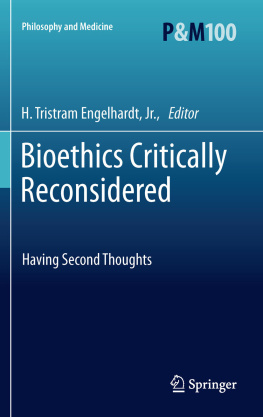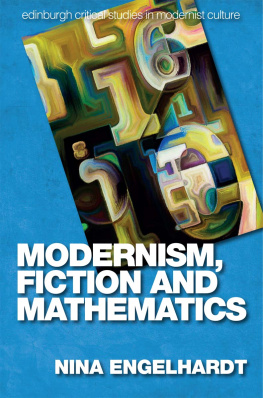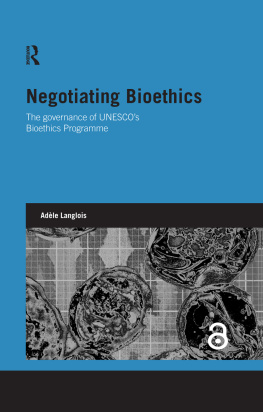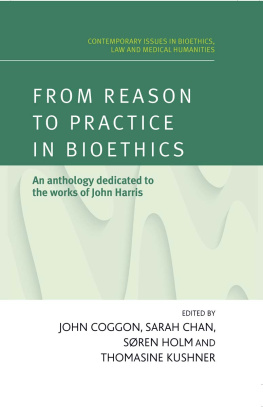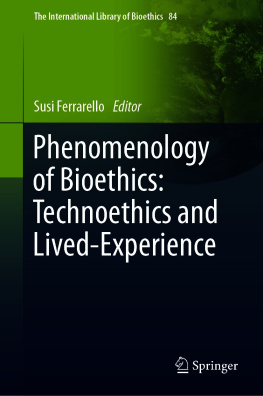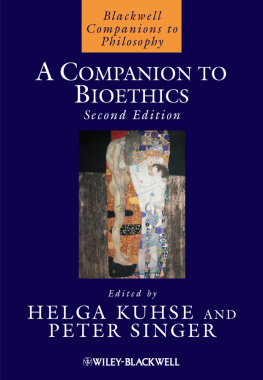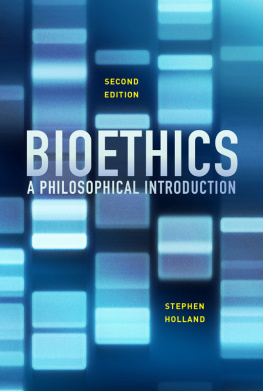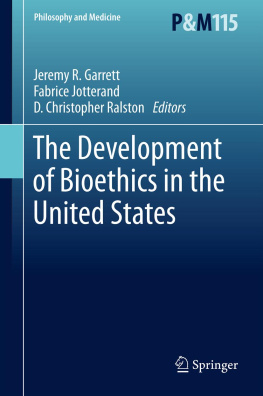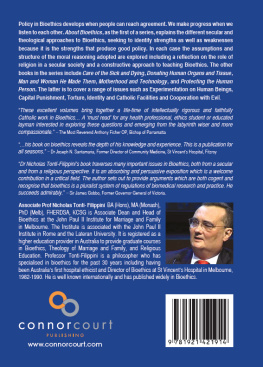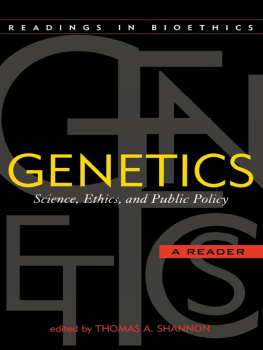H. Tristram Engelhardt (ed.) Philosophy and Medicine Bioethics Critically Reconsidered Having Second Thoughts 10.1007/978-94-007-2244-6_1 Springer Science+Business Media B.V. 2012
1. A Skeptical Reassessment of Bioethics
Abstract
What is bioethics? Who is a bioethicist? Who is a health care ethics consultant or clinical ethics consultant? There are no straightforward answers to such questions. Indeed, the attempt to answer such questions usually engenders controversies. Bioethics is a puzzle. Bioethics is itself a controversy, a theater of dispute. Across the world, there are persons who call themselves bioethicists. But there is no agreement as to what ends they are doing what they do, as to what they should be doing, or even as to what they are doing. In hospitals across the world, there are persons who are paid as clinical ethics consultants (aka health care ethics consultants) and who are often held to be engaged in helping resolve normative questions about health care decisions. But there is no agreement as to what norms they should engage. This is because there is real dispute about the content and character of both morality and bioethics. As a result, there is a puzzle as to how properly to characterize the nature of the normative questions posed to bioethicists, as well as the answers bioethicists give. Bioethicists are asked, for example, about when a particular medical intervention is inappropriate (or futile), about who should make life-or-death decisions, and concerning what information should be provided in order for a patient adequately to consent to treatment. The question is what kinds of norms and which norms should frame such questions. In answering such questions, what norms and which norms should guide the answers? Are the norms at stake those established at law? Is the ethics about which health care ethics consultants (HCEC) give advice simply an account of relevant law and public policy, as well as of how law and public policy is customarily applied? Or are the norms moral norms? If so, norms of which morality? These puzzles about the nature of bioethics justify second thoughts about the entire endeavor of bioethics.
1.1 What Is Bioethics, After All: Claims for Moral Expertisein the Face of Intractable Moral Pluralism
What is bioethics? Who is a bioethicist? Who is a health care ethics consultant or clinical ethics consultant? There are no straightforward answers to such questions. Indeed, the attempt to answer such questions usually engenders controversies. Bioethics is a puzzle. Bioethics is itself a controversy, a theater of dispute. Across the world, there are persons who call themselves bioethicists. But there is no agreement as to what ends they are doing what they do, as to what they should be doing, or even as to what they are doing. In hospitals across the world, there are persons who are paid as clinical ethics consultants (aka health care ethics consultants) and who are often held to be engaged in helping resolve normative questions about health care decisions. But there is no agreement as to what norms they should engage. This is because there is real dispute about the content and character of both morality and bioethics. As a result, there is a puzzle as to how properly to characterize the nature of the normative questions posed to bioethicists, as well as the answers bioethicists give. Bioethicists are asked, for example, about when a particular medical intervention is inappropriate (or futile), about who should make life-or-death decisions, and concerning what information should be provided in order for a patient adequately to consent to treatment. The question is what kinds of norms and which ethics should frame such questions. In answering such questions, what norms and which norms should guide the answers? Are the norms at stake those established at law? Is the ethics about which health care ethics consultants (HCEC) give advice simply an account of relevant law and public policy, as well as of how law and public policy is customarily applied? Or are the norms moral norms? If so, norms of which morality? These puzzles about the nature of bioethics justify second thoughts about the entire endeavor of bioethics.
If the norms at stake are moral norms, the problems proliferate. In terms of whose morality ought one to pose the questions and/or seek the answers? Do those who present questions to health care ethics consultants often have different genre of norms in mind than do the consultants? If those asking for an ethics consultation do not realize that they may have a different sense of ethics than do health care ethics consultants, what kind of disclosure should the consultants provide concerning the differences (e.g., Let me make an important disclosure. One might think that my normative advice as a clinical ethicist is grounded in a universal secular ethics, but there is no such ethic. Instead, my ethics advice reflects the moral vision of one group of secular moralists. You, of course, may have quite different and incompatible moral commitments)? When providing ethics guidance, should health care ethics consultants indicate what goods and harms are most important in shaping their answers, as well as what strategies they hold will likely maximize the balance of benefits over harms? For that matter, are consultants, if they are to be moralists, to be consequentialists? And if so, what sort of consequentialists? By appeal to which list of benefits and harms, and in what relative weight or priority are they to give advice? Or should their concern be to indicate how not to violate wrong-making conditions so as to act rightly, so as to be worthy of happiness? That is, should clinical ethicists indicate how to act in deontologically appropriate fashions? Or should they instead offer an integration of concerns about the good and the right? But then how should they balance the good and the right, especially since there is no agreement on these matters in general or regarding matters in moral philosophy in particular? Or yet further, is the cardinal moral goal that of a virtuous life in the context of health care so that clinical ethicists ought to guide those involved to a virtuous life and away from vice? But what then is virtue or vice? About all such normative issues, as well as moral-theoretical and meta-ethical issues, there is dispute, not agreement. Indeed, the history of moral disputes is as old as the project of moral philosophy itself.1 Or, it may very well be that clinical ethicists rarely give normative advice. In any case, what kind of informed consent and disclosure should be given by clinical ethicists to those seeking an ethics consultation?
One confronts a field, a profession, that offers services, but where there is no agreement about the character or substance of the services offered. The chaos in bioethics is analogous to that in European medicine before it acquired a concern to correct for observer bias and achieved a scientific foundation in the contemporary sense of the notion. People may have agreed that patients consulted physicians because they wished to have their illnesses and disabilities cured, as well as their pains ameliorated, but there was great disagreement about the causes of the illnesses, disabilities, and pains, as well as about the nature of illnesses, disabilities, and pains and how to cure them. There was disagreement at both the level of theory and of practice. Bioethics as academic and practical fields are marked by a similar chaos. At both the normative and theoretical levels, there is dispute, not agreement. The level of disagreement may even be greater in bioethics than that which marked traditional Western medicine, because there may be greater unclarity about what the problems are that bioethics should address.

